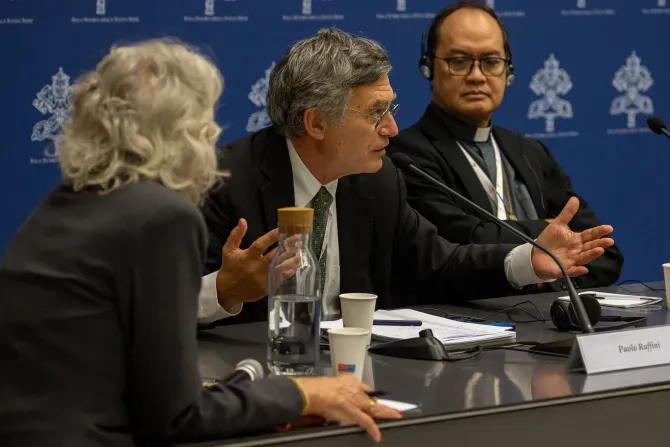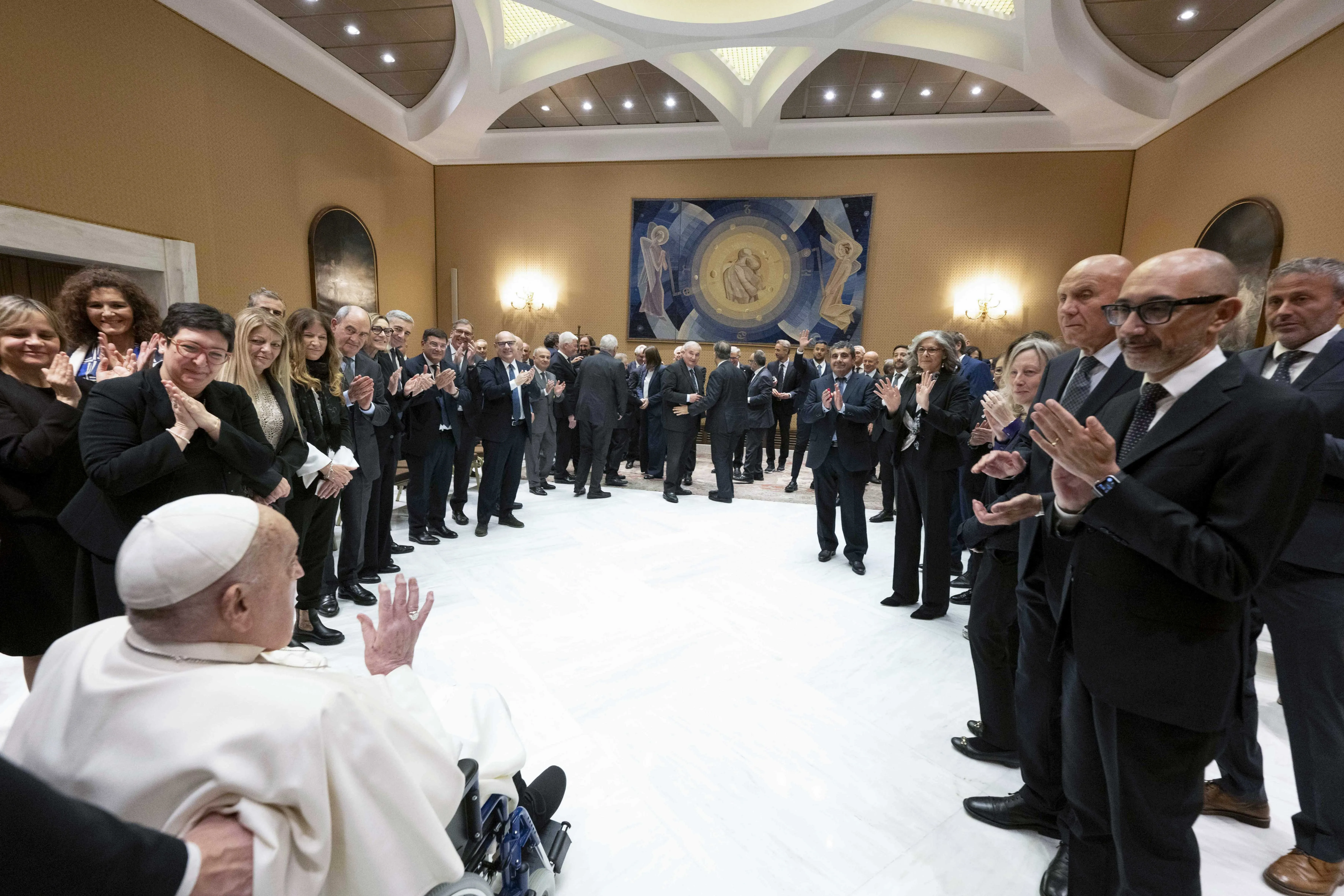Finally, Simona Segoloni Ruta, a professor at the Pontifical John Paul II Institute, opined that “talking about bishops without talking about the people of God is impossible.” Therefore, she argued, the synod is necessary because “it would not be possible to gather only the bishops if the Church wants to feel together.”
At the synod itself, work began on Wednesday on module B3 of the Instrumentum Laboris, the synod’s working document, with a focus on “the question of authority, its meaning, and the style of its exercise within a synodal Church.” In an address to the synodal assembly in the General Congregation, Italian theologian Father Dario Vitali focused on authority and concrete changes to the institutional Church. The theologian proposed the need “to reimagine the Church in a synodal key, so that the entire Church and everything in the Church — life, processes, institutions — is reinterpreted in terms of synodality.”
These discussions introduce a spectrum of perspectives, but not all participants share these views. Rumors of planned absences to avoid contentious debates or to express opposition to certain positions have circulated, challenging the vision of the synod as a harmonious gathering.
The new calendar
The synod organizers introduced a brand-new timetable for the proceedings. Most notably, the draft of the summary report, described by Ruffini as “short and transitory,” will now be presented to the delegates as a unified document rather than in two parts. This adjustment is intended to allow for more substantial consideration of the “road map” for the next phase of the synodal process leading to the concluding session to be held in October 2024.
(Story continues below)
Furthermore, a letter to the people of God will be published at the conclusion of this synod session, marking a change from the previous practice of releasing it only at the end of the entire synod process.
As a result, the synod will pause its activities on the afternoon of Oct. 23 and throughout Oct. 24 for deliberations on the letter of the assembly to the people of God, discussed first in smaller circles and then among the wider general congregation.
Questions about the methodology of the synod arise
This new calendar demonstrates the adaptability and responsiveness of the synod fathers and that synodality as a method also involves constant listening. But it also raises concerns about whether the synodal assembly might turn into an ongoing debate where nothing can be considered definitive in practice and everything remains under discussion.
Many participants have expressed doubts about the method, albeit anonymously, owing to fears about breaking the request for confidentiality.
These doubts revolve around the practice of assigning new tables and subtopics to participants at the start of each new module as well as the fact that in this novel approach everyone discusses particular themes at their tables, but few would be expected to have a global vision of the synod.
Add to it that the short duration of each interaction — limited to four minutes — makes it challenging to articulate complex thoughts and so favors emotional appeals. At least one intervention in the general congregation reportedly raised eyebrows, and there is a concern among participants that facts are being manipulated for emotional effect.
Some synod fathers also complained that the approach appears too “Western-centric,” at least on issues related to sexuality and gender. However, it remains to be seen whether the summary text will truly encompass all perspectives since the final text is voted on, potentially leaving out important nuances and divergent views.
With this comes an inevitable democratization of the process. And along with democratization comes subjectification, a byproduct of the listening process that prioritizes emotion over reason. Every theme must make it into the final text, meaning there will be no formal conclusions, no viewpoints more true than others.
The method, until now, seems to be keeping synod participants in relative harmony. Cardinal Cristobal Lopez Romero, archbishop of Rabat, underlined that in the discussions, there are “divergences, but never clashes.” However, Archbishop Zbigņev Stankevičs of Riga, Latvia, was one of the few to publicly make waves. At the daily press briefing he defended the Church’s pastoral care of homosexuals but drew a clear line in the sand by saying homosexual unions could not be blessed because they are sinful.
Finally, Archbishop Gintaras Grušas of Vilnius, president of the European bishops, used a homily during one of the Masses for participants to caution against synodality becoming an end in itself and emphasizing the role of synodality in serving the Church’s mission of evangelization.
Andrea Gagliarducci is an Italian journalist for Catholic News Agency and Vatican analyst for ACI Stampa. He is a contributor to the National Catholic Register.








